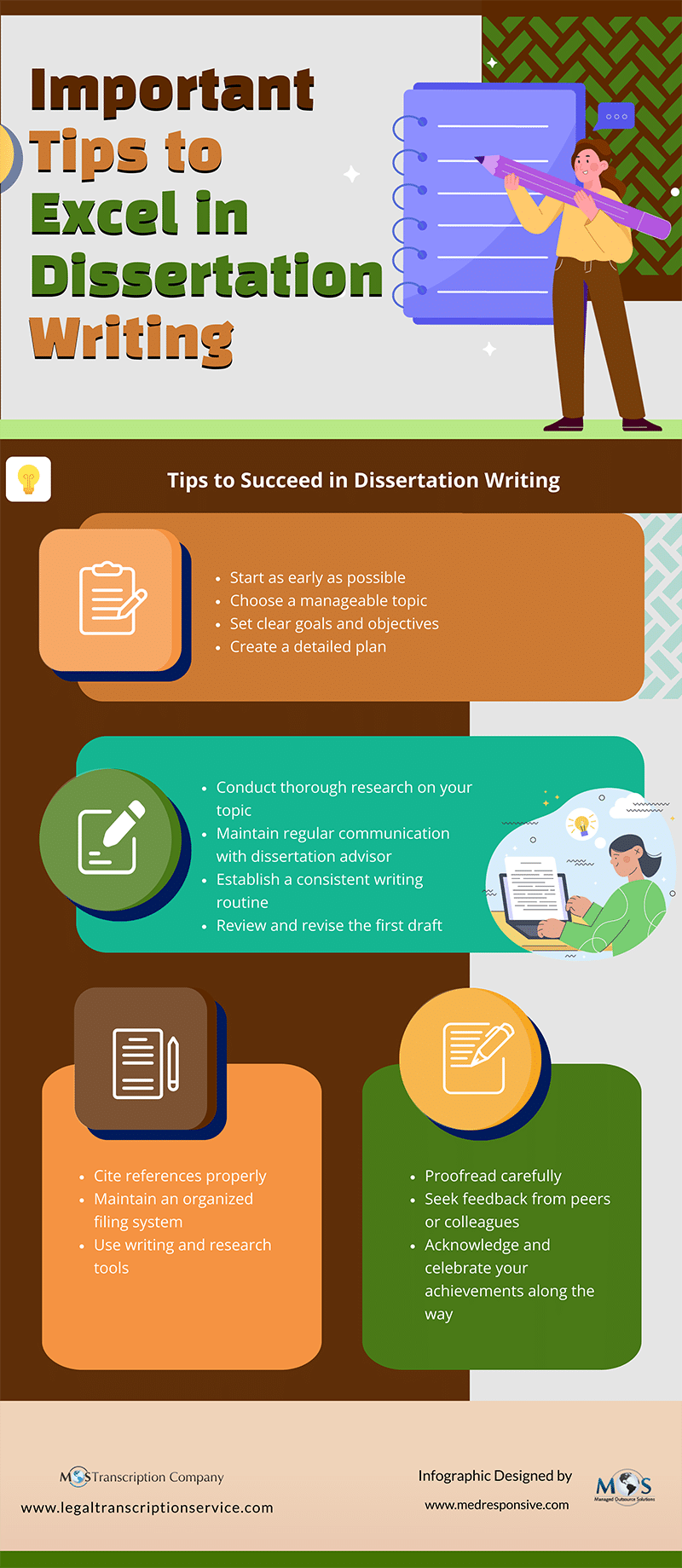A good dissertation is one that demonstrates a student’s capacity to carry out original, independent research. However, no matter how many essays or papers you have written, completing a dissertation can seem daunting. While dissertation transcription services are available to support you in preparing the project, initiating it and writing the final paper requires proper planning. Here are some top tips for success with dissertation writing.
How to Excel in Dissertation Writing
7 Key Tips for Successful Dissertation Writing
- Choose a good topic that is delimited: There’s no room for vagueness here. Select an interesting topic with a clear research question. At the outset, determine the limits or boundaries of your project.
- Plan your project: Strategic planning is the key to good dissertation writing. Set a clear timeline and deadline when you start out. This will ensure that you work towards your goals. However, be realistic and flexible.
- Be methodological when writing: Note down your key ideas, summarize and organize them, and draft paragraphs. Breaking down the paper into manageable subsections will help you deal with one idea at a time.
- Get feedback early on in the process: Communicate with your mentor early on in the process. The sooner you get feedback on your drafts, the easier it will be for you to make modifications if necessary. This will also help with editing the paper.
- Manage your time well: Restrict your other activities and focus on your dissertation. Keep writing during the entire dissertation process. Decide how many hours you will spend on writing every day and stick to that schedule. Don’t aim to be too organized or perfect as this can be counterproductive. Find a timetable that works for you.
- Take time off if you need it: Don’t feel guilty about taking short breaks when your work gets too overwhelming. This will help you recharge and return to your work with renewed vigor.
- Stay positive and motivated: Many students find they are overwhelmed by negative thoughts. Repress such emotions and self-criticism, and build your self-confidence. Remember that “when the going gets tough, the tough get going”.
Find a good support system for transcription and other tasks. Efficient academic transcription services and editing support are available and it would be a good idea to take advantage of them. A dissertation transcription service company can take care of the tedious task of converting your audio and video recordings into neatly formatted text. Having a reliable support system can ease your work and give you more time to focus on your writing.
Achieve precision in every chapter of your dissertation with reliable transcription services.





